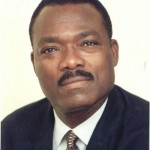Opening a new era in U.S.-Africa Relations
BY SOUMANOU SALIFOU

Founder/Publisher/CEO
In my customary Publisher’s Statement that appeared in the August 2003 issue of this magazine that I titled “French-Speaking Africa and France: an odd relationship,” I wrote that “In today’s unipolar world dominated by the United States, French-speaking African leaders’ allegiance to France, a second-class world power – albeit their former colonial master – is incomprehensible.” In answering my own question: “Why this odd relationship?” I wrote that “Part of the answer lies in U.S. marginal interest in Africa, a continent Washington has traditionally considered as European nations’ protectorate.”
But U.S.-Africa relations have grown stronger since 2003, thanks to the aggressive Africa policy of both President Clinton and President Bush. The forthcoming U.S.-Africa Leaders Summit comes as a golden opportunity to create the missing framework conducive to a hopefully productive dialogue between Washington and African leaders in one place. It should become a regularly-scheduled event and be used as a medium for the United States to wield soft power – the concept developed by Hans Joachim Morgenthau, one of the leading twentieth-century figures in the study of international relations to describe the use of means other than force to achieve foreign policy objectives.
Probably the most powerful operative phrase in the political lexicon of French-Speaking Africa in the early 1990s was “Le Discours de La Baule” (the La Baule Address) in reference to then-French president François Mitterrand’s June 20, 1990 speech during the 16th France-Africa summit to which he invited 37 of his African peers in La Baule, France. Mitterrand stunned the world by calling on his African peers to institutionalize “a representative system, free elections, multipartism, press freedom, freedom of the judiciary, and the renouncing of censorship.” He then went on to say that France would henceforth condition its economic assistance to “efforts leading to more freedom.” The statement not only shook the foundation of the notorious France-Afrique axis, but also played a pivotal role in some French-Speaking African leaders’ embrace of democracy or the deepening of the process already underway in a few of the countries.
Sure enough, Mitterrand’s pronouncement was not fueled by an abrupt divine inspiration to free repressed Africans from the yoke of ruthless dictators. It came in the general context of the fall of the Berlin Wall, just the previous year, that tolled the bell of the Cold War and heightened the African people’s thirst for freedom.
The old adage “nations have interests, not allies” is much alive today. Africa has some great leaders, but some of President Obama’s guests to the U.S.-Africa Leaders Summit are worse than those who have been kept out, which reminds us that the imperatives of geopolitics are sometimes as powerful as the law of gravity. Moreover, it’s no secret that developed nations don’t interact with developing nations out of sheer altruism. Africa is a lucrative market eagerly sought after by world’s powers, large and small.
Unquestionably, though, the United States is a strong locomotive capable of pulling the trains of African economies toward prosperous destinations. U.S. assistance programs such as the African Growth and Opportunity Act (AGOA) signed into law by President Bill Clinton in 2000, and the Millennium Challenge Corporation (MCC) that the Bush Administration enacted in 2004 have made significant contributions in Africa. The former has opened the U.S. marketplace free of tax for thousands of African products, while the latter has poured millions of U.S. dollars into vital socio-economic development projects in Africa. Unlike previous programs, AGOA and MCC came with a conditionality that African countries have to meet to be eligible, notably political and economic reforms. This conditionality should exactly be the spirit behind the U.S.-Africa Leaders Summit, in an effort to persuade African leaders, through soft diplomacy, to address the legitimate concerns voiced by hundreds of African civil-society organizations who have written to President Obama asking to sit at the discussion table.
Unequivocally, the promotion of democracy, good governance, human rights and other core values embedded in the American system of government serves U.S. long-term interests in today’s dangerous world where our destinies are more intertwined than ever. President Obama should, therefore, listen to the African civil society, for the United States is not China, a nation notorious for cooperating with African leaders regardless of their human rights records.
Soumanou Salifou, the founder/publisher of The African, is an alumnus of the Johns Hopkins University’s School of Advanced International Studies located in Washington, D.C.


